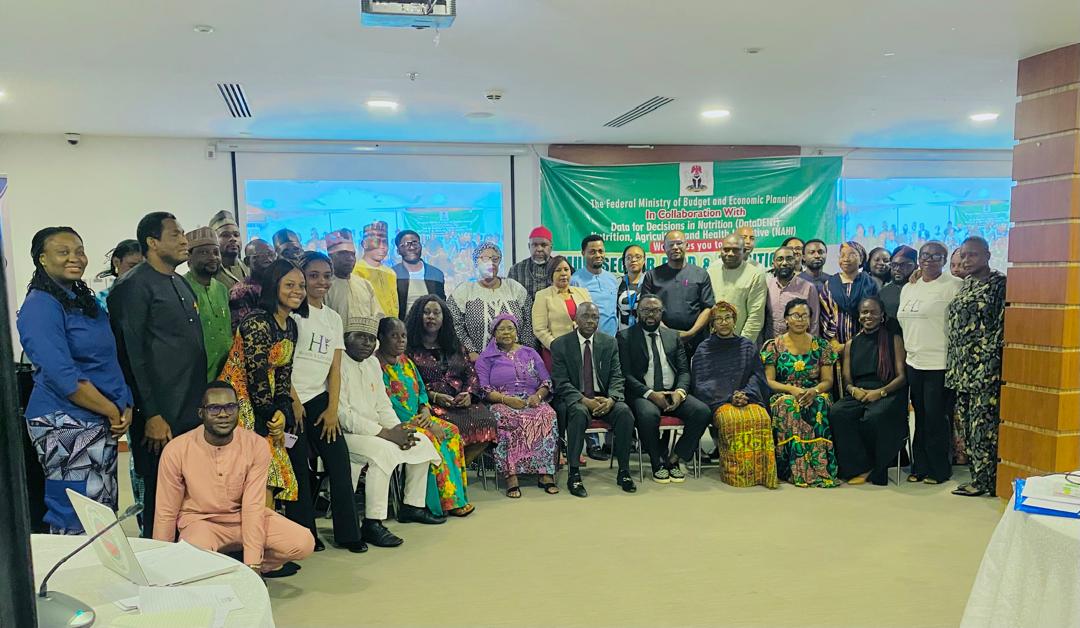From April 29 to 30, 2024, the Health and Lifestyle Development Initiative (HLADI) actively participated in the National Multisectoral Food and Nutrition Data Technical Workshop, convened in Abuja. The event was aimed at fostering stronger inter-agency coordination, enhancing the collection, management, and utilization of food and nutrition data, and advancing Nigeria’s national response to malnutrition.
Organized under a multisectoral framework, the workshop brought together technical experts, government officials from relevant Ministries, Departments, and Agencies (MDAs), representatives of international and local development partners, civil society actors, academia, and the private sector. It provided a strategic platform for in-depth dialogue on the development and integration of robust, harmonized nutrition data systems capable of informing national and subnational policy formulation, program design, and implementation.
Key themes discussed included:
- Identifying and bridging existing data gaps and fragmentation.
- Enhancing interoperability and integration between national and sectoral data platforms.
- Embedding nutrition-sensitive indicators into routine data systems.
- Strengthening community-level data collection and real-time reporting mechanisms.
- Improving data governance, quality assurance, and accountability frameworks.
- Building institutional capacity at all levels for sustained data use and management.
HLADI’s team contributed meaningfully to technical sessions, highlighting the importance of community-based data, participatory data ownership, and locally driven innovations for nutrition surveillance. HLADI also emphasized the need for inclusive data systems that reflect the realities of marginalized and vulnerable populations, particularly at subnational levels.
The workshop concluded with a renewed national commitment to foster cross-sectoral collaboration, institutionalize evidence-based decision-making, and enhance data sharing practices among stakeholders. A roadmap was developed, outlining priority actions for improving Nigeria’s food and nutrition data landscape.
HLADI remains steadfast in its commitment to promoting resilient, data-informed nutrition systems. Through strategic partnerships, policy advocacy, and grassroots engagement, HLADI will continue to champion sustainable solutions that advance health equity, food security, and nutrition for all.
